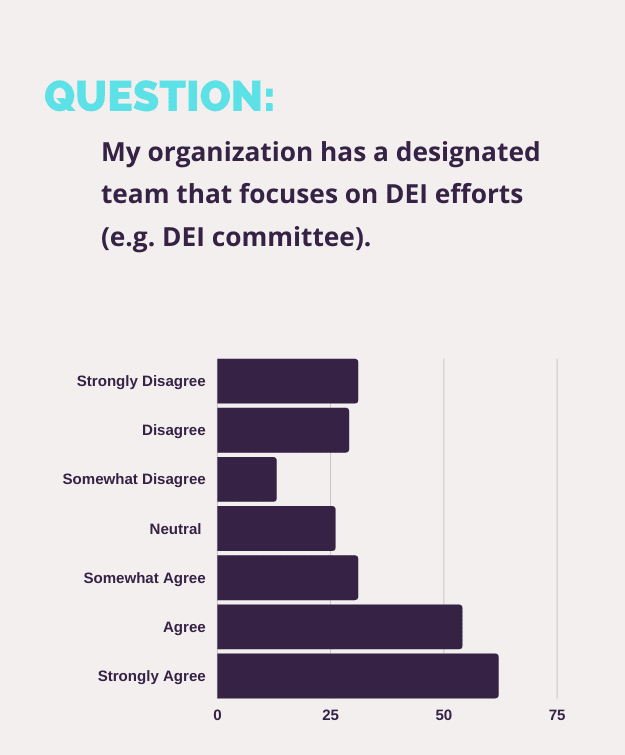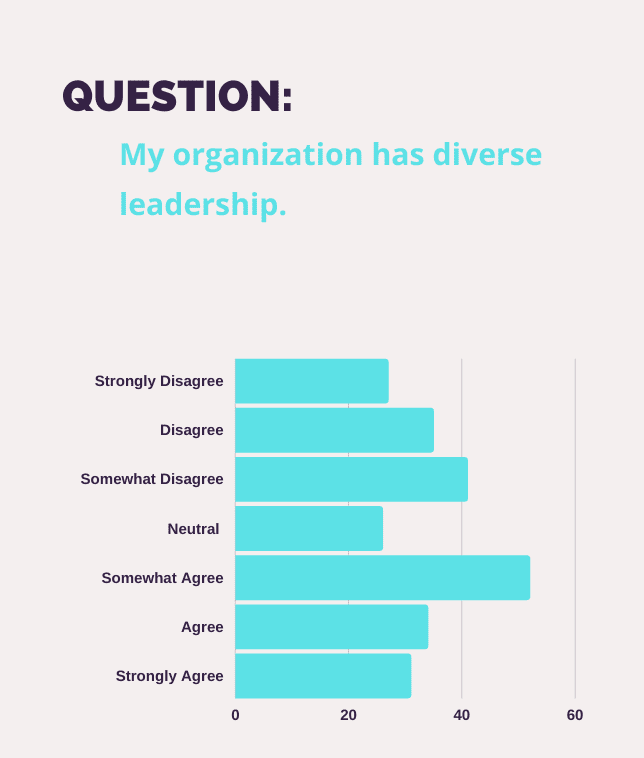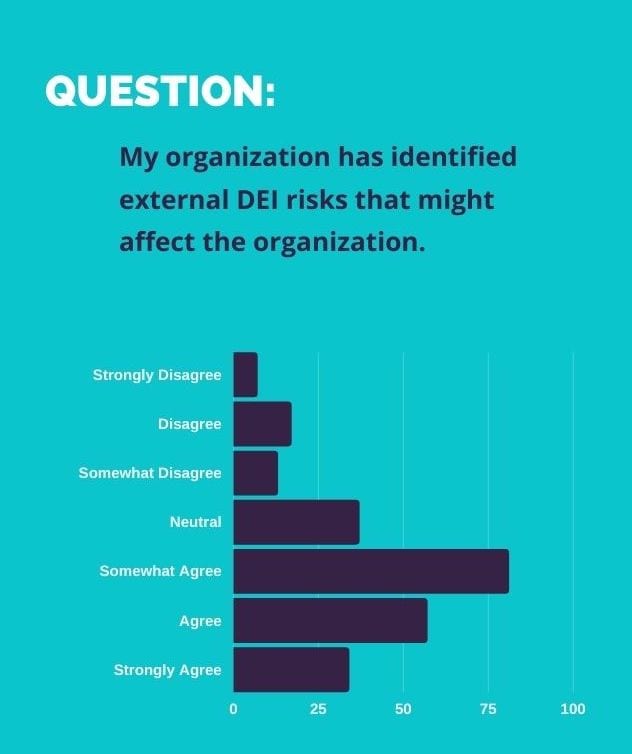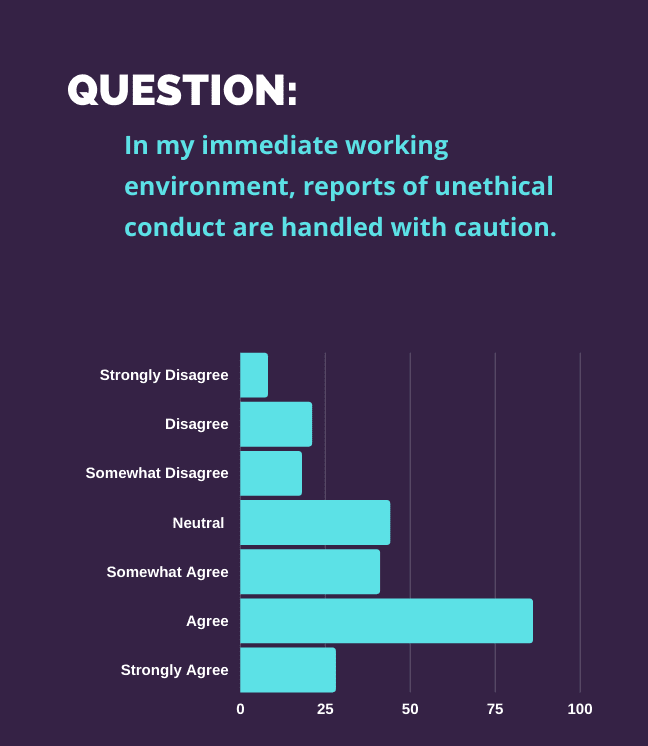
[Editor’s Note: In late February and early March, PRNEWS and the University of Georgia collaborated on a survey of 400+ PR pros, asking them about crisis, diversity and leadership. Below are preliminary findings. PRNEWS subscribers will receive a white paper with complete findings and analysis later this year.]
At a time when diversity, equity, and inclusion (DEI) should be the norm in organizations, it is not. A new survey from the University of Georgia (UGA) and PRNEWS shows a consistent shortfall on diversity-related efforts.
For example, almost 30 percent of 400+ U.S. PR pros disagree with the statement that their organization has a team focused on improving DEI (see chart 1).

[Note: Charts show participant totals, not percentages.]
Although, 60 percent say DEI is emphasized in their organization, the nearly 30 percent who indicate it is not seems too large to ignore.
This group of roughly 30 percent of respondents is seen in several of the survey’s DEI-related questions.
Also too large to ignore, though predictable, is the response to a question about diverse leadership. Here a whopping 42 percent disagree with the statement: “My organization has diverse leadership” (see chart 6).

It’s well known that PR is not ethnically diverse in its ranks or leadership. Not surprisingly, our survey was not ethnically diverse either: more than 80 percent of respondents identify as white/Caucasian.
As we know, an ethnically homogenous industry faces many issues, not the least of which is creating messages for an increasingly diverse public. The survey points to another blind spot for PR with its relatively homogenous profile: spotting potential diversity issues (see chart 2).

The survey was fielded in February and March 2021, well after the start of what many are calling ‘the country’s racial awakening’ or ‘the second pandemic.’
Emotional Intelligence
The survey also examines PR leaders’ emotional intelligence. A series of questions measures empathy, resourcefulness and sensemaking in PR leaders. For the purposes of the survey, definitions were as follows:
Empathy is a leader’s emotional intelligence;
Resourcefulness is how a leader determines and understands what is at his/her disposal;
Sensemaking is how a leader transitions from understanding a situation to acting on it.
The survey shows PR pros generally view their leaders as emotionally intelligent. In addition, nearly all respondents (96+ percent) say PR leaders have slightly higher resourceful and sensemaking skills, compared to empathy levels. Considering the return to work will put a premium on empathetic leadership (see article on p. 9), this finding is a concern.
In addition, respondents feel as though leaders fail to provide meaning or reason behind their decisions.
Ethical issues are seldom black and white, so it is important for workplaces to create a safe space for discussions about uncomfortable issues. The survey shows ethical concerns are not always handled cautiously—suggesting the level of care that practitioners expect and need is lacking.

What is promising, however, is that 63 percent of practitioners believe ethical issues are handled seriously (see chart 5). There is still a way to go, but the industry is heading in the right direction.
